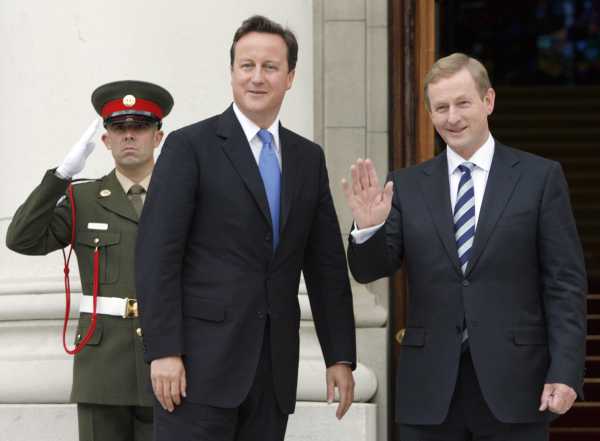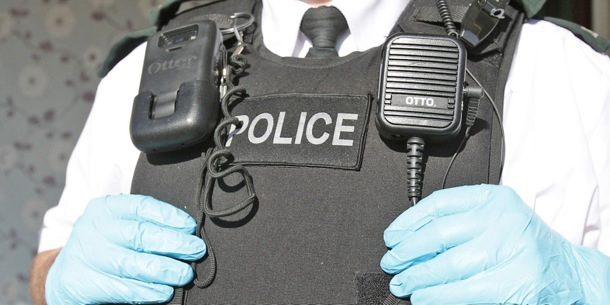22 October 2015
This new round of talks has to be successful – real negotiations need to take place

● The British and Irish governments have failed to honour their commitments to ensure full implementation of the agreements
THE POLITICAL PROCESS in the North has been held back by continuous phases of political instability since 2010.
This pattern of instability stems from the disengagement and negative mismanagement of both the peace and political processes by the Tory Government. This British approach has been mirrored by the Irish Government’s semi-detachment and passivity towards the North.
Both governments have failed to honour their commitments to ensure full implementation of the Good Friday Agreement and other agreements since 1998.
In the period from 2010 the two governments have stepped back from their responsibilities and political unionism has refused to support proper power-sharing in the North. That has contributed directly to the serious political difficulties and ongoing instability, particularly around dealing with the past; disputed parades; and flags, symbols and cultural identity.
The failure to implement equality, parity of esteem, mutual respect and lack of agreement on how we move forward as a society is stark and profound.
This is the reason why the talks convened by Richard Haass and Meghan O'Sullivan occurred in late 2013. Rejection of their proposals and further political instability is what then led to new negotiations in November/December 2014 at Stormont House.
In the last two years, this vexed and intractable political situation has been exacerbated by the austerity crisis caused by the British Conservatives' reduction of the North's public expenditure settlement (the block grant) by hundreds of millions of pounds.
That has had devastating consequences for public services, job losses, social welfare protections and economic growth in the Six Counties.
With the election of the majority Conservative Government in May, worse is set to come.
Another £1.5billion will be cut from the block grant.
An estimated £120million per year will be taken from the pockets of working families as a result of Conservative cuts to tax credits.
British Government austerity policies have deepened the political instability. British policy now directly threatens the viability of the political institutions and the political process itself.
Arising from this context, political unionism has now contrived a very real crisis since the summer following the murders of Jock Davison and Kevin McGuigan. In response, and for the third year in a row, a new round of inter-party political talks has started. However, there has been an absence of any momentum. Several weeks ago, a cynical electoral power play between the Ulster Unionist Party and the Democratic Unionist Party brought them to an effective standstill pending the conclusion of a report by the British Government.
That report was published this week and talks have recommenced. This is to be welcomed, notwithstanding the fact that some elements of the British report (and a parallel Garda report) have been seized upon by opponents of Sinn Féin.
Consequently, the real potential exists for more sham fights, diversions and prevarication as the DUP and UUP try to electorally outmanoeuvre each other and for other negative political influences to hold back progress in the talks.

Nationalist and republican confidence in the integrity of policing arrangements has been seriously undermined by the actions of the PSNI. The possibility this has been deliberately provoked cannot be discounted, which in itself would be a serious and sinister development.
There is a widespread conviction that some elements within political unionism have pulled back and are not seriously committed to power sharing.
The role of the British Government is commonly viewed as being without either credibility or genuine intent.
More generally, the reputation of the political institutions and belief in the capacity of the political process to deliver has been damaged. Public services are under greater pressure and Conservative policies are hurting more and more in-work and out-of-work families.
So this new round of talks has to be successful – real negotiations need to take place.
All the issues are familiar. Building for the future on the basis of equality is central. Leadership and vision are the lynchpins. Short-term electoral gain and/or political one-upmanship can have no role.
The templates for progress across many of the issues have already been agreed. These should now be faithfully implemented. Attempts to elevate British state security interests in an attempt to draw back from ensuring that viable mechanisms to deal with the past are implemented must be opposed.
For real negotiations to go forward, the British Government must accept its role as a participant. British political and economic policy towards the North has to change.
Both the British and Irish governments must take their responsibilities seriously.
The negative political pattern which has held back political progress needs to be broken.
Political stability, commitment to proper power sharing, and securing a sustainable, workable budget should be central to negotiations. These are the benchmarks of success. These are what the people want.

Important contributions are being made from within civic society to developing a forward roadmap which can help with economic stability and growth.
New reports such as Punching Above Our Weight by the CBI, Growing the Economy and Living Standards by Unite the Union, the substantive Irish Congress of Trade Unions submission to last year's Stormont House negotiations, and the content of the recent Equality Coalition conference in Belfast are all absolutely relevant to the current talks process.
In the short time available, the political parties and the two governments should open up the political process to embrace the hopes, ideas and involvement of civic society in the North.
These negotiations should not short-change Northern society with a slide back to further political instability or a future of austerity.
The trajectory needs to be ambitious to regenerate the vision of the Good Friday Agreement and to open up an era of transformational and inspirational politics. That is what all our people deserve.
Follow us on Facebook
An Phoblacht on Twitter
Uncomfortable Conversations

An initiative for dialogue
for reconciliation
— — — — — — —
Contributions from key figures in the churches, academia and wider civic society as well as senior republican figures





